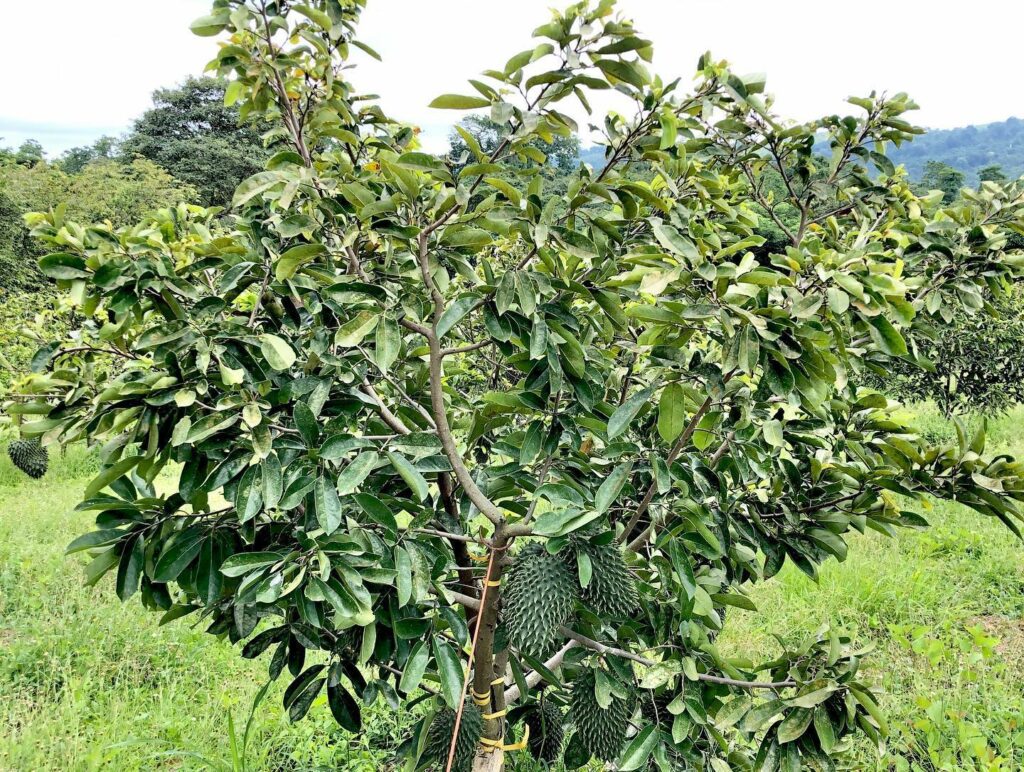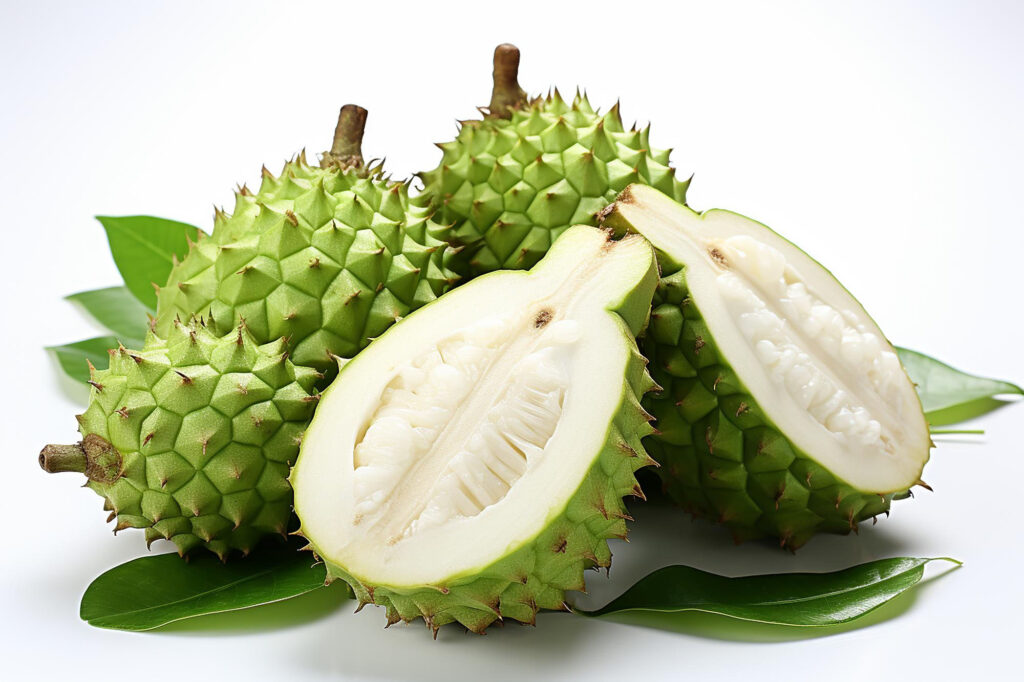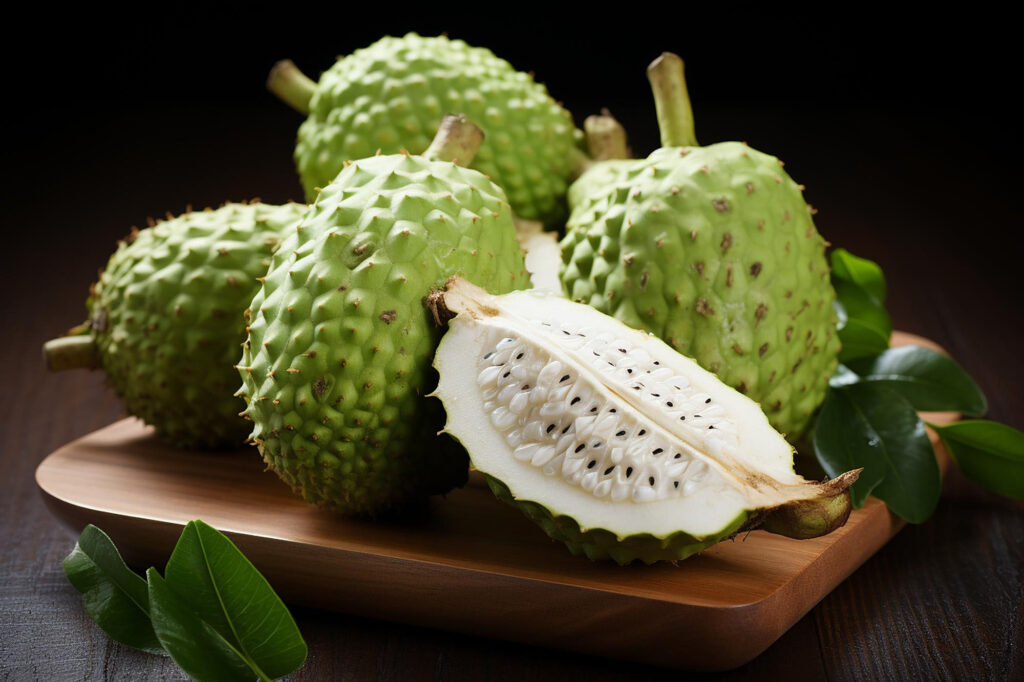Soursop, scientifically known as Annona muricata, is a tropical fruit that has gained popularity around the world due to its impressive health benefits. Native to Central and South America, soursop is prized for its sweet, mild flavor, as well as its potential to combat various diseases. In this article, we will explore the production of soursop, from its cultivation to its arrival in our homes.
Soursop Cultivation
Growing soursop is a process that requires care and attention, but the results are rewarding for both farmers and consumers. The main aspects of soursop cultivation are described below:

1. Climate and Soil: Soursop thrives in tropical and subtropical climates with warm temperatures and a high level of humidity. It is drought resistant, but for optimal yield, well-drained, slightly acidic soil is preferred. The tropical regions of Latin America, the Caribbean and Southeast Asia are ideal for its cultivation.
2. Planting: Soursops are propagated mainly through seeds. Farmers select seeds from ripe fruits and plant them in nurseries. When the seedlings reach a suitable size, they are transplanted into the field. The space between plants should be at least 5 meters to allow proper growth.
3. Care and Maintenance: The growth of soursop requires regular care, which includes pruning diseased or dead branches, regular watering and the application of organic fertilizers. It is important to protect plants from pests and diseases, such as aphids and blight fungus.
4. Harvest: Soursop is harvested when the fruits are ripe. This is recognized by a slight change in skin color, which goes from dark green to light green. Farmers cut the fruits carefully to avoid damaging the pulp, which is the edible part.

Processing and Distribution
Once harvested, the soursop undergoes a cleaning and classification process. The fruits are carefully selected to eliminate any damage or defects. Then, they are packaged in special boxes or bags for distribution.
Soursop is transported to local and international markets, where it is sold both fresh and processed. In addition to being consumed in its natural form, soursop is used to make juices, smoothies, ice cream, jams and other products. It is also available in the form of dietary supplements and extracts due to its medicinal properties.


